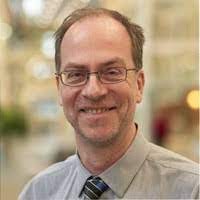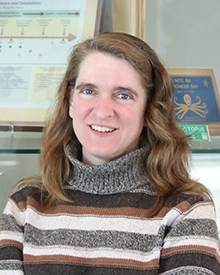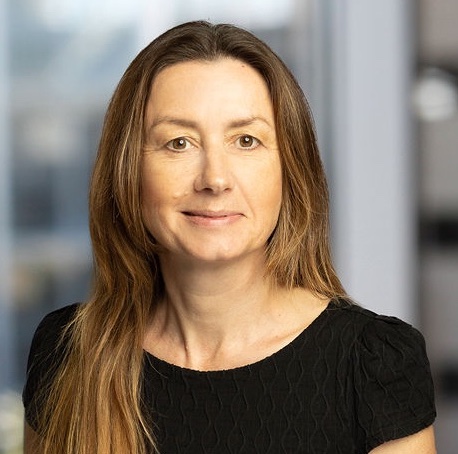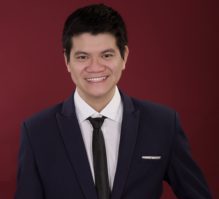5th Annual Meeting of the
SIAM Texas-Louisiana Section
November 4th - November 6th, 2022
Hosted by the University of Houston
The SIAM Texas-Louisiana Section and the Department of Mathematics at the University of Houston will be hosting the 5th Annual Meeting of the SIAM TX-LA Section from November 4th to November 6th, 2022.
Conference Program
The full conference program can be found in our booklet (PDF).
To identify the buildings, either click on the links included in the program or take a look at the map found on this webpage.
Friday, November 4 2022
- 02:00-05:30 Registration (Location: CBB (Main Entrance))
- 03:00-05:00 Mini-symposia (Location: CBB or CEMO)
- 04:00-05:00 Career Panel (Location: CEMO 100D)
- 05:00-05:30 Refreshments (Location: CBB (Main Entrance))
- 05:30-06:30 Plenary Lecture Hohl (Location: CEMO 100D)
Saturday, November 5 2022
- 08:00-11:00 Registration (Location: CBB (Main Entrance))
- 08:30-10:30 Mini-symposia (Location: CBB or CEMO)
- 10:30-11:00 Coffee Break (Location: Houston Room (2nd floor), Student Center South)
- 11:00-12:00 Plenary Lecture Woodward (Location: CEMO 100D)
- 12:30-01:30 Poster Session A and Lunch (Location: Houston Room (2nd floor), Student Center South)
- 12:30-01:30 Mentoring Event (Location: Houston Room (2nd floor), Student Center South)
- 01:30-03:30 Mini-symposia (Location: CBB or CEMO)
- 01:30-03:30 Tutorial (Location: CEMO 100D)
- 03:30-04:30 Plenary Lecture Willcox (Location: CEMO 100D)
- 04:30-06:30 Mini-symposia
- 06:30-07:30 Banquet (Location: Houston Room (2nd floor), Student Center South)
- 07:30- Poster Session B (Location: Houston Room (2nd floor), Student Center South)
Sunday, November 6 2022
- 08:30-10:30 Mini-symposia (Location: CBB or CEMO)
- 10:30-11:00 Coffee Break (Location: Houston Room (2nd floor), Student Center South)
- 11:00-12:00 Plenary Lecture Tran (Location: CEMO 100D)
- 12:00-01:00 Lunch (Location: Houston Room (2nd floor), Student Center South)
- 01:00-03:00 Mini-symposia (Location: CBB or CEMO)
Plenary Talks
 Dr. Detlef Hohl
Dr. Detlef Hohl
Chief Scientist
Computation and Data Science
Shell
Homepage
Title: Content-based image retrieval for industrial material with deep learning Abstract: Industrial materials images are an important application domain for content-based image retrieval (CBIR). Users need to quickly search databases for images that exhibit similar appearance, properties and/or features to reduce analysis turnaround time and cost. The images in this study are 2D images of millimeter-scale rock samples acquired at micrometer resolution with light microscopy and micro-CT. Labeled rock images are expensive and time consuming to acquire and thus are typically only available in the tens of thousands. Training a high-capacity deep learning (DL) model from scratch is therefore not practicable due to data paucity. To overcome this "few shot learning" challenge, we propose leveraging pre-trained common DL models in conjunction with transfer learning. We present a novel DL architecture that combines Siamese networks with a loss function that integrates classification and regression terms. For efficient inference, we use a highly compressed image feature representation, computed offline, to search the database for images similar to a query image. Numerical experiments demonstrate superior retrieval performance of our new architecture compared with other DL and custom-feature based approaches.
Time and Location: Friday, November 4 2022, 5:30 PM - 6:30 PM, CEMO 100D
 Dr. Carol Woodward
Dr. Carol Woodward
Distinguished Member of the Technical Staff
Center for Applied Scientific Computing
Lawrence Livermore National Laboratory
Homepage
Title: Time integration methods and software for scientific simulations
Abstract: Time-dependent systems are at the heart of numerous scientific applications requiring simulation. While single rate, fixed step size time integration methods have been used for decades, adaptive step methods and schemes that can efficiently evolve problems with multiple time scales have not yet been fully engaged in many science applications. In this talk, I will overview current adaptive methods and discuss new multirate methods that address multiphysics problems. The SUNDIALS time integration software library will be presented as a vehicle for getting innovative numerical mathematics into applications. Lastly, I will present examples of use of SUNDIALS in scientific applications on state-of-the-art computers.
This work was performed under the auspices of the U.S. Department of Energy by Lawrence Livermore National Laboratory under Contract DE-AC52-07NA27344. Lawrence Livermore National Security, LLC. LLNL-ABS-834136.
Time and Location: Saturday, November 5 2022, 11:00 AM - 12:00 PM, CEMO 100D
 Dr. Karen E. Willcox
Dr. Karen E. Willcox
Director, Oden Institute for Computational Engineering and Sciences
The University of Texas at Austin
Associate Vice President for Research
Professor of Aerospace Engineering and Engineering Mechanics
W. A. “Tex” Moncrief, Jr. Chair in Simulation-Based Engineering and Sciences
Peter O'Donnell, Jr. Centennial Chair in Computing Systems
Homepage
Title: Beyond forward simulations: From reduced-order models to digital twins with computational science Abstract: Digital twins represent the next frontier in the impact of computational science on grand challenges across science, technology and society. A digital twin is a computational model or set of coupled models that evolves over time to persistently represent the structure, behavior, and context of a unique physical system or process. A digital twin is characterized by a dynamic and continuous two-way flow of information between the computational models and the physical system. This talk will highlight the important roles of reduced-order modeling and uncertainty quantification in achieving robust, reliable digital twins at scale. The talk will present our recent work on developing cancer patient digital twins in collaboration with the Oden Institute Center for Computational Oncology.
Time and Location: Saturday, November 5 2022, 3:30 PM - 3:30 PM, CEMO 100D
 Dr. Minh-Binh Tran
Dr. Minh-Binh Tran
Assistant Professor
Department of Mathematics
Texas A&M
Homepage
Title: Some recent results on wave turbulence theory Abstract: Wave turbulence describes the dynamics of both classical and non-classical nonlinear waves out of thermal equilibrium. In this talk, I will present our recent results on the rigorous justification of wave turbulence theory, starting from the stochastic Zakharov-Kuznetsov (ZK) equation, a multidimensional KdV type equation, on a hypercubic lattice. To the best of our knowledge, the work provides the first rigorous derivation of nonlinear 3-wave kinetic equations, for both homogeneous and inhomogeneous cases. Moreover, this is the first derivation for wave kinetic equations in the lattice setting and out-of-equilibrium. This is joint work with Gigliola Staffilani (MIT).
Time and Location: Sunday, November 6 2022, 11:00 AM - 12:00 PM, CEMO 100D
Career Panel
Time: Friday, November 4, 4 PM.
Location: CEMO 100D.
Panelists: Dr. Detlef Hohl (Shell), Dr. Youzuo Lin (Los Alamos National Laboratory), Dr. Rami Nammour (TotalEnergies), Dr. Annalisa Quaini (University of Houston), and Dr. Carol Woodward (Lawrence Livermore National Laboratory).
Mentoring Event
During this event a mentor (senior researcher) will meet with a Protégé (undergraduate or graduate student) and will answer career related questions. We will match the mentors and protégé based on multiple factors, e.g., research area, career stage, and general interests. You should have received an email that pairs you with your mentor/protégé.
Suggested topics/questions for mentors include:
- How do you plan a career?
- What do you do to constantly challenge yourself?
- Do/did you have a mentor? How have they influenced you?
- Would you do anything different if given the opportunity?
- How and where do you find inspiration?
- How do you balance your work and home life?
Time: Saturday, November 5, 12 PM to 1 PM.
Location: Houston Room, Student Center South (during the lunch break)
Tutorial
A hands-on tutorial for data-driven Full Waveform Inversion
Description: Understanding subsurface velocity structures is critical to a myriad of subsurface applications, such as carbon sequestration, reservoir identification, subsurface energy exploration, earthquake early warning, etc. They can be reconstructed from seismic data with full waveform inversion (FWI), which is governed by partial differential equations (PDEs).
Data-driven FWI leverages neural networks to learn the inverse mapping from seismic data to velocity maps. In this tutorial, we will walk through the anatomy of two data-driven FWI networks: InversionNet and VelocityGAN. The codes written in Pytorch are available on GitHub and examples of the Jupyter notebook will be given for attendees to get hands-on practice. The attendees would run experiments and make modifications to see how they are trained with an open-access seismic FWI dataset, OpenFWI. The broader goal of this tutorial is to provide a deeper understanding of how machine learning methods are implemented in solving scientific inverse problems.
Dr. Youzuo Lin
Team Leader and Staff Scientist, Sensors and Signatures Team
Geophysics Focus Lead, Center for Space and Earth Sciences
Earth and Environmental Sciences
Los Alamos National Laboratory
Dr. Shihang Feng
PostDoc
Los Alamos National Laboratory
Time: Saturday, November 5, 1 PM to 3 PM.
Location: CEMO 100D.
Mini-Symposia
Each mini-symposium session will consist of at most 4 talks. We will have six block-sessions of mini-symposia with a total of 31 mini-symposia with varying numbers of sessions. The mini-symposia are listed below along with their organizers. Additional details regarding the planned minis-symposia can be found in our booklet (PDF). This booklet includes details such as individual speakers, co-authors, as well as titles and abstracts for individual talks.
Venue
Mini-symposia will be hosted in the following buildings:
- Classroom and Business Building (CBB)
- Michael J. Cemo Hall (CEMO)
Mini-Symposia Block Sessions
The block sessions are as follows:
- Saturday, November 5 2022
- 03:00-05:00 Mini-symposium Block 1
- Saturday, November 5 2022
- 08:30-10:30 Mini-symposium Block 2
- 01:30-03:30 Mini-symposium Block 3
- 04:30-06:30 Mini-symposium Block 4
- Sunday, November 6 2022
- 08:30-10:30 Mini-symposium Block 5
- 01:00-03:00 Mini-symposium Block 6
Proposed Mini-Symposia
- MS01 Recent advances in large-scale inverse problems: Numerics, theory, and applications
Organizers: Alexander Mamonov, Andreas Mang, Danel Onofrei - MS02 Nonlocal Models in Mathematics and Computation
Organizers: Patrick Diehl, Debdeep Bhattacharya, Burak Aksoylu & Robert P. Lipton - MS03 Mathematical Modeling for Biological Dynamics
Organizers: Zhuolin Qu, Lale Asik & Xiang-Sheng Wang - MS04 Modeling, analysis and numerical simulations involving thin structures
Organizers: Andrea Bonito, Annalisa Quaini, Maxim Olshanskii & Frederic Marazzato - MS05 Deep Learning Methods for Biomedical Image Analysis & Modeling
Organizer: Edward Castillo - MS06 Physics-based and Data-driven models for Engineering Applications
Organizers: Mayank Tyagi & Yucel Akkutlu - MS07 Spectral theory of Schrodinger operators and related topics
Organizers: Wencai Liu, Rodrigo Matos & Fan Yang - MS08 Sparse representation and model reduction for scientific problems
Organizers: Yifei Lou, Jingwei Hu & Yunan Yang - MS09 Mathematical Physics and Graph Theory
Organizers: Jake Fillman, Rui Han & Stephen Shipman - MS10 High-Order Numerical Methods for Partial Differential Equations
Organizers: Juntao Huang & Zheng Sun - MS11 Hamiltonian and Integrable Systems
Organizers: Baofeng Feng & Tomoki Ohsawa - MS12 Tensor Modeling and Applications
Organizers: Yifei Lou & Susan Minkoff - MS13 Numerical methods and applications for geosciences
Organizers: Giselle Sosa Jones & Loic Cappanera - MS14 Mathematics and Computation in Biomedicine
Organizers: Sebastian Acosta & Charles Puelz - MS15 Recent advances of scientific computing and applications
Organizer: Ying Wang - MS16 Recent Advances in Reduced Order Models
Organizer: Matthias Heinkenschloss - MS17 Recent Advances in Learning
Organizers: Andrea Bonito & Ming Zhong - MS18 Advances in theory and computation of functional optical materials
Organizers: Matthias Maier & Daniel Massatt - MS19 Modeling the heart-brain axis and age-related pathology
Organizer: Travis Thompson - MS20 Recent Developments in Model Reduction and Low Rank Algorithms
Organizers: Zhichao Peng & Min Wang - MS21 Recent Advances of Numerical Simulations for Fluid Flows and Applications
Organizers: Yong Yang & Yonghua Yan - MS22 Stability of Solitary Waves with applications to Optics and Fluids
Organizers: Brian Choi & Ross Parker - MS23 Special Topics in Mathematical Biology
Organizers: Summer Atkins & Hayriye Gulbudak - MS24 Nonlinear Physics Models and Mathematical Structures
Organizers: Vesselin Vatchev, Zhijun Qiao, Wilson Zuniga Galindo & Erwin Suazo - MS25 High Order Methods for Computational Hydrodynamics
Organizers: Madison Sheridan & Bennett Clayton
- MS26 Scientific Deep Learning
Organizers: Hai Nguyen, Tan Bui-Thanh & C. G. Krishnanunni
- MS27 Challenges and opportunities in computational science and engineering: perspectives from data-driven learning and model reduction
Organizers: Ionut Farcas, Marco Tezzele & Aniketh Kalur - MS28 Modeling of air flow and droplet transport for biomedical applications
Organizers: Vladimir Ajaev & Andrea Barreiro - MS29 Applications and Computation in Algebraic Geometry
Organizers: Jordy Lopez Garcia, Josue Tonelli-Cueto & Thomas Yahl - MS30 Data-driven and Nonlinear Model Reduction Methods for Physical Sciences and Engineering
Organizers: Rudy Geelen & Shane McQuarrie - MS31 Mathematical modeling and robust numerical algorithmsin various biological processes
Organizer: Shuang Liu
Contributed Poster Presentations
We will host two poster sessions on Saturday, November 5 2022. Both poster sessions will take place in the Houston Room, Student Center South (2nd Floor Plan). More information regarding the poster submissions can be found in our booklet (PDF). The poster board dimensions are 36 in high by 48 in long (landscape orientation). Consequently, we recommend to prepare your posters in A0 landscape orientation (841 mm high × 1189 mm long or 33.1 in high × 46.8 in long).
Poster Session A: Saturday 12:00 to 1:00
- F01 Probabilistic bounds on best rank-one approximation ratio.
- F02 Group table and Sudoku puzzles.
- F03 Elements of disease in a changing world: modelling feedbacks between infectious disease and ecosystems.
- F04 Scalability analysis of direct and iterative solvers used to model charging of non-insulated superconducting pancake solenoids.
- F05 Role of machine learning in the game of cricket: A systematic review and a meta-analysis.
- F06 Validity of angles in generalized circle/sphere theorems.
- F07 On the inf-sup stability of Crouzeix-Raviart Stokes Elements in 3D.
- F08 Accounting for ethnicity improves the outcomes of vaccine prioritization strategies.
- F09 Distributed generalized wirtinger flow for interferometric imaging on networks.
- H01 Comparative analysis of sustainable carbon capture technologies through their carbon footprints—Who’s watching the watchmen?.
- H02 Classifying melanoma using convolutional neural networks.
- U01 Analyzing Dallas County eviction data.
- U02 Comparing Activation Functions to Corresponding B-functions.
- U03 Robust principal component analysis and k-means on video footage for motion detection.
- U04 Convergence of a modified Galerkin method for solutions of cantilevered structures.
- U05 Investigating packing configurations of DNA in viral capsids.
- U06 Hyperbolicity of surfaces of positive curvature.
- U07 Regulating autonomous drone fly-overs via authorization-based zoning.
- U08 On invertibility of passive 1D cloaking systems.
- U09 A mathematical model of onchocerciasis resistance and treatment.
- U10 Mathematical modeling of nematic liquid crystals.
- U11 Bayesian methods to infer parameters for ODE models of disease spread.
- U12 An immunological model for COVID-19.
- U13 N-soliton solutions to the KdV equation.
- U14 Analyzing the effectiveness of the gang reduction youth development program using dynamic mode decomposition.
- U15 Modelling supraventricular tachycardia using a dynamic computer-generated left atrium.
Poster Session B: Saturday 7:30 to 9:00
- G01 The global active subspace method.
- G02 Predictive models of arsenic and phosphorus contamination in the Dickinson Bayou watershed.
- G03 Active score Shapley for global sensitivity analysis.
- G04 C0 interior penalty methods for an optimal control problem with a general tracking function and pointwise state constraints.
- G05 Imaging of 3D objects with real data using orthogonality sampling methods.
- G06 Einstein’s model with traveling band of biological systems and it’s localization properties.
- G07 Model-informed generative adversarial network (MI-GAN) for learning optimal power flow.
- G08 An application of multivariate analysis tools.
- G09 Deep learning and statistical multivariate analysis for inferring breast cancer.
- G10 Consensus ADMM-based distributed simultaneous imaging & communication.
- G11 A conservative low-rank tensor method for the Vlasov–Maxwell system.
- G12 Accelerated distributed optimization for multi-agent synchronization.
- G13 A Local Macroscopic Conservative (LoMaC) low rank tensor method with the discontinuous Galerkin method for the Vlasov dynamics.
- G14 Model of Disease Spread Using Stochastic Processes on Networks.
- G15 TNet: A model-constrained Tikhonov network approach for inverse problems.
- G16 Automatic classification of deformable shapes.
- G17 Formative assessment of middle grades students’ proportional reasoning.
- G18 Einstein’s model on the movement of small particles in a stationary liquid revisited.
- G19 Simulating implicitly solvated biomolecules with atomic polarizable multipoles.
- G20 Structure-preserving finite element schemes for the Euler-Poisson equations.
- G21 Fast evaluation of PDE operators for optimization and uncertainty quantification in problems governed by transport equations.
- G22 Trajectory optimization of hypersonic vehicles via a Radau pseudospectral method.
- G23 Rogue wave solutions to the Sasa-Satsuma equation.
- G24 Model-based group testing.
- G25 Predicting shallow water dynamics using recurrent neural network and transfer learning.
- G26 Critical angle for nanopattern formation in ion-irradiated thin films.
- G27 Imbalanced machine learning technique to predict heart disease.
- G28 Model selection for zero inflated count data from Demographic Health Survey.
- G29 A new diagonalization based method for parallel-in-time solution of linear-quadratic optimal control problems.
- G30 Modeling and numerical analysis of cholesteric shells.
- G31 Bayesian nonparametric learning of stochastic differential equations.
- G32 Scalable average consensus with compressed communications.
- G33 On the performance of gradient tracking with local updates.
- G34 Model of disease spread using stochastic processes on networks.
- G35 The area law for XXZ quantum spin systems.
- G36 Waves in black hole geometries: An energy-based discontinuous Galerkin method.
- G37 Interactive image segmentation for brain tumors.
- G38 Predicting voting behavior of minority groups from publicly available census data.
- G39 Local stochastic factored gradient descent for distributed quantum state tomography.
- G40 A novel way to compute the numerical flux terms in nodal Discontinuous Galerkin (DG) methods for multiscale physics.
- G41 New numerical schemes for the Q-tensor model of nematic liquid crystals.
- G42 A face-oriented stabilized Nitsche-type extended variational multiscale method for incompressible two-phase flow.
- G43 Parameter inference for the Fitzhugh-Nagumo model through artificial neural networks.
- G44 Smart materials model with hysteresis and thermodynamic compatibility: Parameter identification.
- G45 Bayesian methods to infer parameters for ODE models of disease spread.
- G46 Classification performance of supervised machine learning methods on multivariate normal mixture models.
- G47 Comparison of AI models for automatic liver segmentation.
- G48 On chaotic non-stationary steady-states and biological processes.